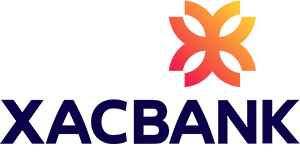Security
I. How XacBank protects your information?
Protecting our customer’s information is our primary responsibility. We focus on system integrity and keeping your personal and account information confidential and secure.
To protect your personal information from unauthorized access and use, we use security measures that comply with federal laws. These measures include device safeguards, secured files and buildings.
If you utilize our online or mobile services, then you are protected by our Online Banking Security, which means that your personal and account information are protected.
We take the following actions to protect your confidential information:
- Information security policies and procedures that comply with legal standards have been developed and implemented in all our activities.
- International standards and requirements relating to information security are regularly being researched and implemented by our team.
- We hire highly skilled information security specialists.
- International audit organizations regularly investigate our information technology processes and provide us with valuable feedback.
- We invite internationally advisors to maintain and develop our systems, processes and technologies.
II. How to protect yourself?
The best tool to protect against fraud and identity theft is you. If you monitor your transactions regularly and report any suspicious transactions on time, then you can minimize the chances of a problem occurring.
Internet bank security:
XacBank recommends the following:
- Make sure you visit XacBank’s official website when you sign in to Online Banking. It is safer to use www.e-xacbank.mn in your browser.
- Make sure you are using a different password in online banking from ones used in other systems.
- Change your password periodically. It is a good practice to reset your password seasonally or every 6 months. If you ever suspect that someone may have your password, reset it and notify us immediately.
- Make your password memorable. If you need to write it down, make sure it's kept in a secure location and not available to anyone but you. Also, since this will be the password you need to access your accounts, take the time to think of a good strong one.
- Choose a Good Password. These tips will make it difficult for others to guess your password and help protect your account:
Do use at least 6 characters and a combination of letters and numbers. | Good Password: note45s |
Do not use your name, your spouse's name, your pet's name, birthday, favorite food, or any personal information that others can easily obtain. | Bad Password: amaraa fido (pet's name) |
Do not use a password that contains part of your online User ID or e-mail address. | Bad Password: jimmy (while your ID is jimmy in jersey) |
- Do not access online banking from public places, such as internet cafes.
- Be careful when using online banking from public computers such as internet cafe.
- You can check the last login time when you access online banking. Therefore, it is possible to see unauthorized access to your account. So, you should regularly check your login times and verify them.
- If you access into online banking without doing anything for a while, the online banking system will automatically cancel your connection. You must enter your username and password again to reconnect.
Mobile bank security:
Please observe the following guidelines to secure your transactions:
- You should protect your mobile phone using a password to prevent unauthorized access.
- You can reduce account information loss by ensuring the confidentiality of your password.
- You should immediately delete the AMAR service’s messages that are related to your transactions and other activities on your account after you have read them.
Credit & Debit Card Security:
Please observe the following guidelines to secure your transactions:
- Sign the signature panel on your credit and debit cards as soon as you receive them.
- Save the receipts from your transactions and keep them in a safe location. Check your statements to verify that they properly reflect the amounts you have authorized. Report any unauthorized transactions immediately. Once you have reconciled your statements, shred all receipts and discard them at home.
- Checking your balances and viewing your account statements online is safer than having information sent through the mail.
- Make a list that include the telephone numbers to call if your cards are ever lost or stolen.
Use ATMs safely:
Please observe the following guidelines to secure your transactions:
- Use ATMs with surveillance cameras and be aware of people and your surroundings.
- Count your cash later in the safety of your locked car or home.
- When you enter or exit an ATM in an enclosed area, be sure to close the entry door completely.
- Do not open locked ATM vestibule doors for others or allow any unknown persons to enter the ATM area while you are making your transaction.
- Shield the ATM keypad with your hand or body while entering your PIN.
Tips for safe computer use:
Please observe the following guidelines to secure your computer:
- The best defense against computer attacks is preventative software. You will need to update the security software regularly to guard against new risks, so download updates from your provider as soon as they're available. Or, set the software to update automatically.
- Many Internet Service Providers offer a personal firewall. A personal firewall protects your home computer against unauthorized access.
- Only install applications and software from well-known companies that you trust.
- Keep your operating system and software up-to-date with the latest security updates and patches.
III. How we help victims of identity theft?
Money mules
Money mules are unsuspecting victims who become middlemen for criminals trying to launder stolen funds. Common indicators of a money mule scam include:
- Overseas companies requesting money transfer agents in Mongolia.
- Opening new bank accounts to receive money from a stranger.
- Accepting large sums of money into a personal bank account for a new job.
- Transferring or wiring funds out of a personal bank account to unknown people.
Malware
Malware, short for malicious software, includes viruses, spyware and Trojans that are designed to infiltrate or damage a computer system, steal personal information and/or commit fraud. There are several easy ways you can minimize malware risk:
- The developer or author of the application is not XacBank
- The app is being promoted on a third-party site, somewhere other than the official app store for your mobile device
- There is a charge for downloading the app - XacBank does not currently charge for mobile app downloads
- To help protect your accounts and information, never download or install a XacBank Mobile Banking app if you spot any of these warning signs.
Fake Mobile Banking apps
Criminals may develop and publish fake mobile banking applications that look like official XacBank apps but are in truth designed to steal your Online Banking credentials. Here are tips for recognizing an unofficial XacBank app:
- The developer or author of the application is not XacBank
- The app is being promoted on a third-party site, somewhere other than the official app store for your mobile device
- There is a charge for downloading the app - XacBank does not currently charge for mobile app downloads
- To help protect your accounts and information, never download or install a XacBank Mobile Banking app if you spot any of these warning signs.
SMShing
SMShing is phishing fraud that happens via SMS text message. A criminal sends a text message that tries to trick you into replying with financial or personal information or clicking on links that will secretly install viruses onto your mobile device:
- Do not respond to text messages that request personal or financial information. XacBank will never ask you to provide your private information through SMS.
- You can save the official number of XacBank or you can double check the number from the ‘Contact’ tab of XacBank’s main website to ensure the authenticity of the SMS.
Lost and stolen devices
Mobile phones and tablet devices offer convenience, but they're also easy to lose or steal, which can put your information at risk. Here are some ways you can protect yourself now in the event your device is lost or stolen later:
- Password-protect your device so it can’t be accessed unless the password is entered.
- Enable an automatic screen-locking mechanism to lock the device when it’s not actively being used.
- Keep a record of the device’s make, model and serial number in case it’s stolen.
Electronic email
Phishing and spoofing emails ask you to go to a fake website that looks like XacBank and provide your personal account information. These emails may even ask you to call a phone number and provide account information. Ways to identify phishing and spoofing emails include:
- Messages about system and security updates. XacBank will never claim the need to confirm important information due to upgrades and state that you must update your information online.
- Offers that sound too good to be true. For example, you may be asked to fill out a short customer service survey in exchange for money, and then be asked to provide your account number to receive the credit.
- Obvious typos and other errors. These are often the mark of fraudulent emails and websites. Be on the lookout for typos or grammatical errors, awkward writing and poor visual design.
If you have been the victim of identity theft, contact us immediately through: 1800-1888




